detail profile walter saxer
Peran Yang Di Mainkan Walter Saxer
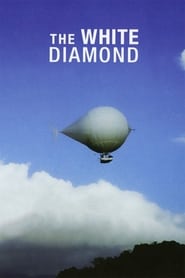 This 2004 documentary by Werner Herzog diaries...
This 2004 documentary by Werner Herzog diaries...The White Diamond 2004
This 2004 documentary by Werner Herzog diaries the struggle of a passionate English inventor to design and test a unique airship during its maiden flight above the jungle canopy.
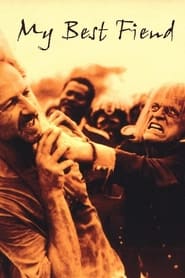 A film that describes the lovehate...
A film that describes the lovehate...My Best Fiend 1999
A film that describes the love-hate relationship between Werner Herzog and Klaus Kinski, the deep trust between the director and the actor, and their independently and simultaneously hatched plans to murder one another.
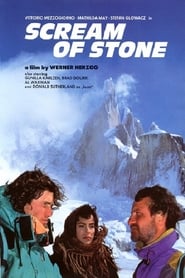 A meeting of two world famous...
A meeting of two world famous...Scream of Stone 1991
A meeting of two world famous climbers, one an experienced mountaineer the other a sport climber, and a journalist (Ivan) results in a bet on which of the two is the best climber. Roger (the mountaineering expert) states that Martin (the sport climber) wouldn't survive a day on a 'real' climbing expedition, although he is considered to be the world's best sport climber (having just won an indoor 'world championship,' an event depicted in the opening scene). They plan to climb 'Cerro Torre,' in the Patagonia region of South America, near the Argentinian/Chilean border, one of the world's most difficult mountains, especially considering the extreme weather conditions common to the area.
 Documentary examining Bokassas rule in the...
Documentary examining Bokassas rule in the...Echoes from a Sombre Empire 1990
Documentary examining Bokassa's rule in the Central African Republic using the testimony of witnesses and visits to key sites.
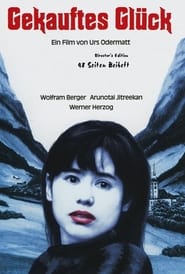 After the death of his mother...
After the death of his mother...Bride of the Orient 1989
After the death of his mother, a lonely farmer in rural Switzerland considers finally starting a family of his own. Eventually he pays for a bride from Thailand. The couple don't share a language, but being to know each other. However the village neighbors are suspicious of foreigners.
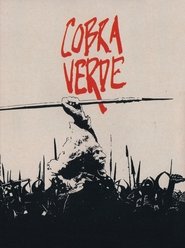 A fearsome 19th century bandit Cobra...
A fearsome 19th century bandit Cobra...Cobra Verde 1987
A fearsome 19th century bandit, Cobra Verde cuts a swath through Brazil until he arrives at the sugar plantation of Don Octávio Countinho. Not knowing that his new guest is the notorious bandit and impressed by his ruthless ways, Don Octávio hires Cobra Verde to oversee his slaves. But when Cobra Verde impregnates Don Octávio’s three daughters, the incensed plantation owner exiles the outlaw to Africa where he is expected to reopen the slave trade. Following his trans-Atlantic journey, Cobra Verde exploits tribal conflicts to commandeer an abandoned fortress and whips an army of naked warriors into a frenzied bloodlust as he vies for survival.
 The Amazon rain forest 1979 The crew...
The Amazon rain forest 1979 The crew...Burden of Dreams 1982
The Amazon rain forest, 1979. The crew of Fitzcarraldo (1982), a film directed by German director Werner Herzog, soon finds itself with problems related to casting, tribal struggles and accidents, among many other setbacks; but nothing compared to dragging a huge steamboat up a mountain, while Herzog embraces the path of a certain madness to make his vision come true.
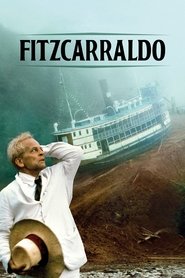 Fitzcarraldo is a dreamer who plans...
Fitzcarraldo is a dreamer who plans...Fitzcarraldo 1982
Fitzcarraldo is a dreamer who plans to build an opera house in Iquitos, in the Peruvian Amazon, so, in order to finance his project, he embarks on an epic adventure to collect rubber, a very profitable product, in a remote and unexplored region of the rainforest.
 Having fathered an illegitimate child with...
Having fathered an illegitimate child with...Woyzeck 1979
Having fathered an illegitimate child with his lover, Marie, feckless soldier Franz Woyzeck takes odd jobs around his small town to provide some extra money for them. One job is volunteering for experiments conducted by a local doctor, who puts Woyzeck on a diet of peas. This serves to drive him close to madness, and the discovery that Marie is involved in an affair with the local drum major exacerbates the situation. Pushed too far, Woyzeck resorts to violence.
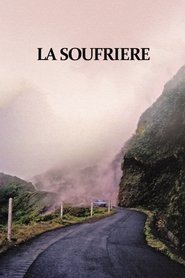 Werner Herzog takes a film crew...
Werner Herzog takes a film crew...La Soufrière: Waiting for an Inevitable Catastrophe 1977
Werner Herzog takes a film crew to the island of Guadeloupe when he hears that the volcano on the island is going to erupt. Everyone has left, except for one old man who refuses to leave.
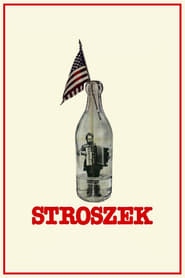 Bruno Stroszek is released from prison...
Bruno Stroszek is released from prison...Stroszek 1977
Bruno Stroszek is released from prison and warned to stop drinking. He has few skills and fewer expectations: with a glockenspiel and an accordion, he ekes out a living as a street musician. He befriends Eva, a prostitute down on her luck and they join his neighbor, Scheitz, an elderly eccentric, when he leaves Germany to live in Wisconsin.
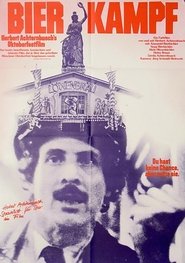 A man who is dissatisfied with...
A man who is dissatisfied with...Beer Chase 1977
A man who is dissatisfied with his senseless existence in his family-life and social status steals the uniform of a policeman and then enters the Oktoberfest. Now he is somebody, he is important, he can help, people respect him, etc. His wife, other relatives and some friends start to follow him while he gets some new acquaintances.
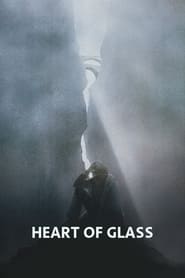 A small Bavarian village is renowned...
A small Bavarian village is renowned...Heart of Glass 1976
A small Bavarian village is renowned for its "Ruby Glass" glass blowing works. When the foreman of the works dies suddenly without revealing the secret of the Ruby Glass, the town slides into a deep depression, and the owner of the glassworks becomes obssessed with the lost secret.
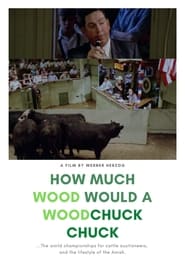 A documentary short examining the language...
A documentary short examining the language...How Much Wood Would a Woodchuck Chuck 1976
A documentary short examining the language and performance of auctioneering, filmed at the World Livestock Auctioneer Championship in Pennsylvania.
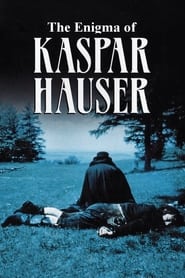 The film follows Kaspar Hauser Bruno...
The film follows Kaspar Hauser Bruno...The Enigma of Kaspar Hauser 1974
The film follows Kaspar Hauser (Bruno S.), who lived the first seventeen years of his life chained in a tiny cellar with only a toy horse to occupy his time, devoid of all human contact except for a man who wears a black overcoat and top hat who feeds him.
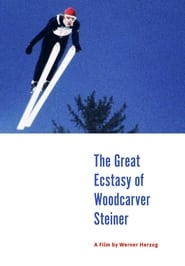 A study of the psychology of...
A study of the psychology of...The Great Ecstasy of Woodcarver Steiner 1974
A study of the psychology of a champion ski-flyer, whose full-time occupation is carpentry.
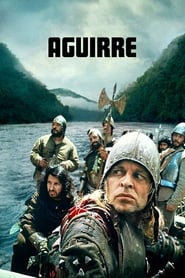 A few decades after the destruction...
A few decades after the destruction...Aguirre, the Wrath of God 1972
A few decades after the destruction of the Inca Empire, a Spanish expedition led by the infamous Aguirre leaves the mountains of Peru and goes down the Amazon River in search of the lost city of El Dorado. When great difficulties arise, Aguirre’s men start to wonder whether their quest will lead them to prosperity or certain death.
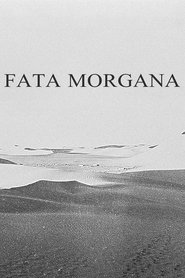 Shot under extreme conditions and inspired...
Shot under extreme conditions and inspired...Fata Morgana 1971
Shot under extreme conditions and inspired by Mayan creation theory, the film contemplates the illusion of reality and the possibility of capturing for the camera something which is not there. It is about the mirages of nature—and the nature of mirage.

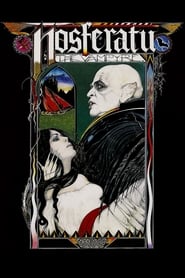 A real estate agent leaves behind...
A real estate agent leaves behind... A group of tormented patients stage...
A group of tormented patients stage...